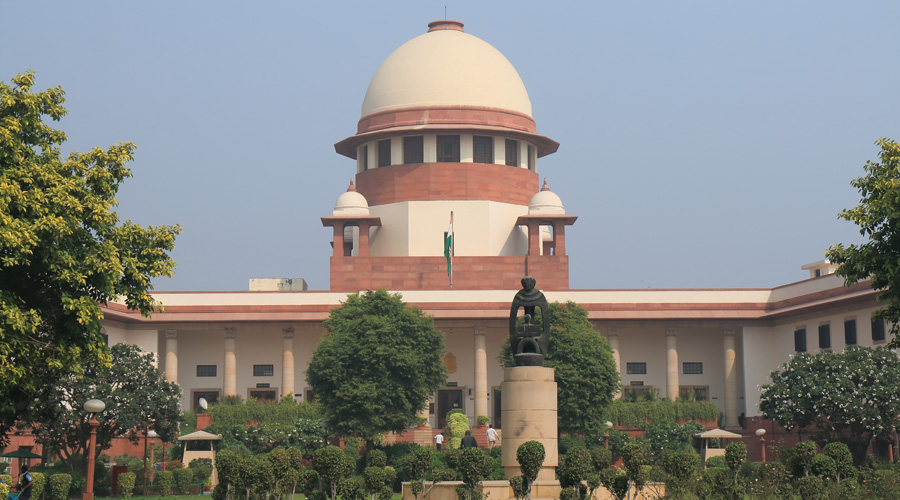The Supreme Court on Tuesday issued notices to the Centre and the Delhi and Rajasthan governments on a plea to transfer from high courts pending petitions on laying down a uniform minimum marriageable age for men and women.
A bench headed by Chief Justice of India S.A. Bobde sought the response of the authorities concerned after senior advocate Geetha Luthra sought the transfer of the multiple petitions to the apex court for an authoritative pronouncement.
The transfer application was filed by Ashwini Upadhyay, an advocate on whose earlier writ petition challenging the different marriageable ages prescribed for men and women the apex court had issued notices to the respective governments.
The present transfer application has urged the Supreme Court to fix a uniform marriageable age for men and women as all laws of the country mandate a minimum of 18 years for women and 21 years for men, which the petitioner complained was discriminatory against women due to traditional and stereotypical approaches considering them subservient to men.
The following laws lay down the different ages for men and women: Section 60(1) of the Indian Christian Marriage Act, 1872; Section 3(1)(c) of the Parsi Marriage and Divorce Act, 1936; Section 4(c) of the Special Marriage Act, 1954; Section 5(iii) of the Hindu Marriage Act, 1955; and Section 2(a) of the Prohibition of Child Marriage Act, 2006.
Assailing the different age thresholds for men and women, the transfer petition says: “While men are permitted to get married at the age of 21, women are married (off) when they are just 18. The distinction is based on patriarchal stereotypes, has no scientific backing, perpetrates de jure and de facto inequality against women, and goes completely against global trends.”
It pointed out that the law commission had earlier observed that there exists no scientific basis for such distinction and that differential limits “simply contribute to the stereotype that wives must be younger than their husbands”.
The Committee on Elimination of Discrimination against Women had noted that some countries provide for different ages for marriage for men and women.
As such provisions assume incorrectly that women have a different rate of intellectual development than men, or that their stage of physical and intellectual development at the time of marriage is immaterial, these provisions should be abolished, the petition said.











